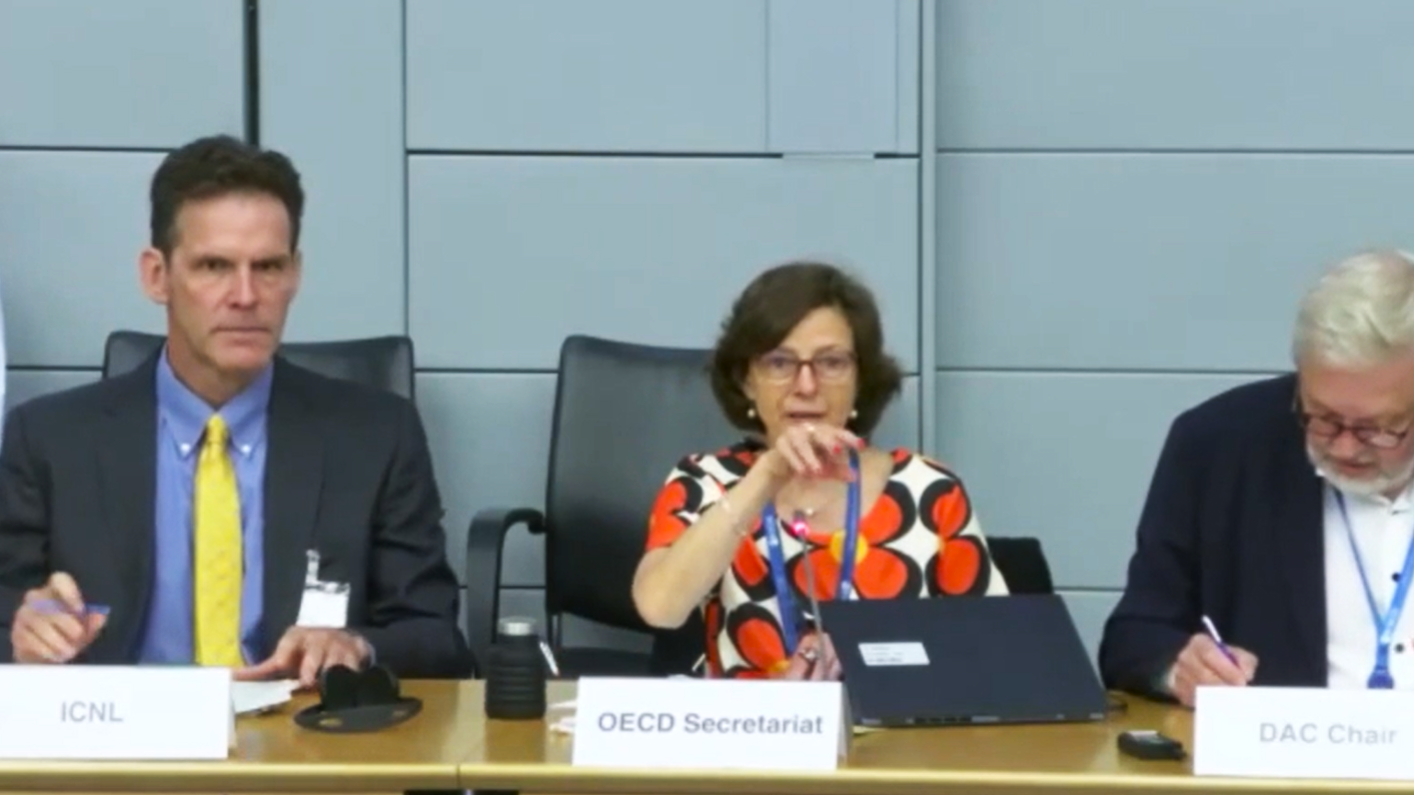Event Recap: Protecting Civic Space in a Turbulent World
As part of the 2025 OECD Development Assistance Committee (DAC) Civil Society Days, ICNL’s Vice President for Legal Affairs, David Moore, moderated a high-level roundtable titled “Protecting Civic Space in a Turbulent World.” Held June 18–19, 2025, the DAC Civil Society Days brought together governments, civil society organizations, donors, multilateral institutions, foundations, and researchers to explore the challenges facing civic space, and how to better support civil society as independent development actors.
Alongside ICNL, panelists from Denmark’s Ministry of Foreign Affairs, the Manushya Foundation, the Government of the Dominican Republic, and the OECD highlighted troubling global trends: the proliferation of foreign agent laws, the criminalization of advocacy, digital repression, and transnational threats to civic actors. These developments reflect a broader shift in which civil society is too often treated as a threat rather than a partner, undermining pluralism, accountability, and development outcomes.

In response, speakers shared diverse strategies for protecting civic space:
- Denmark’s Digital Democracy Initiative, which supports local civil society through co-created digital tools and advocacy
- Manushya Foundation’s intersectional and decolonial approach, offering legal defense and building coalitions against SLAPPs and online harassment
- The Dominican Republic’s participatory strategy for civic space, developed as part of its 2024–2028 Open Government Partnership Action Plan
- The OECD’s new DAC Toolkit on Co-ordinating Action for Civic Space, which offers providers practical ways to tailor and align efforts in support of civic freedoms.
As part of the wider event, several key resources were launched to support stronger, more coordinated action:
- Funding Civil Society: Guidance on flexible, sustainable resourcing for civil society actors.
- Shifting Power to Local Actors: Tools for donors and INGOs to build equitable, locally led partnerships.
As pressures on civic space grow, the session reinforced the urgent need for flexible, preventive, and context-driven support, and for translating global commitments into sustained action that empowers civil society worldwide.
Watch the OECD full recording of the session
Sign up for our newsletters
Sign up